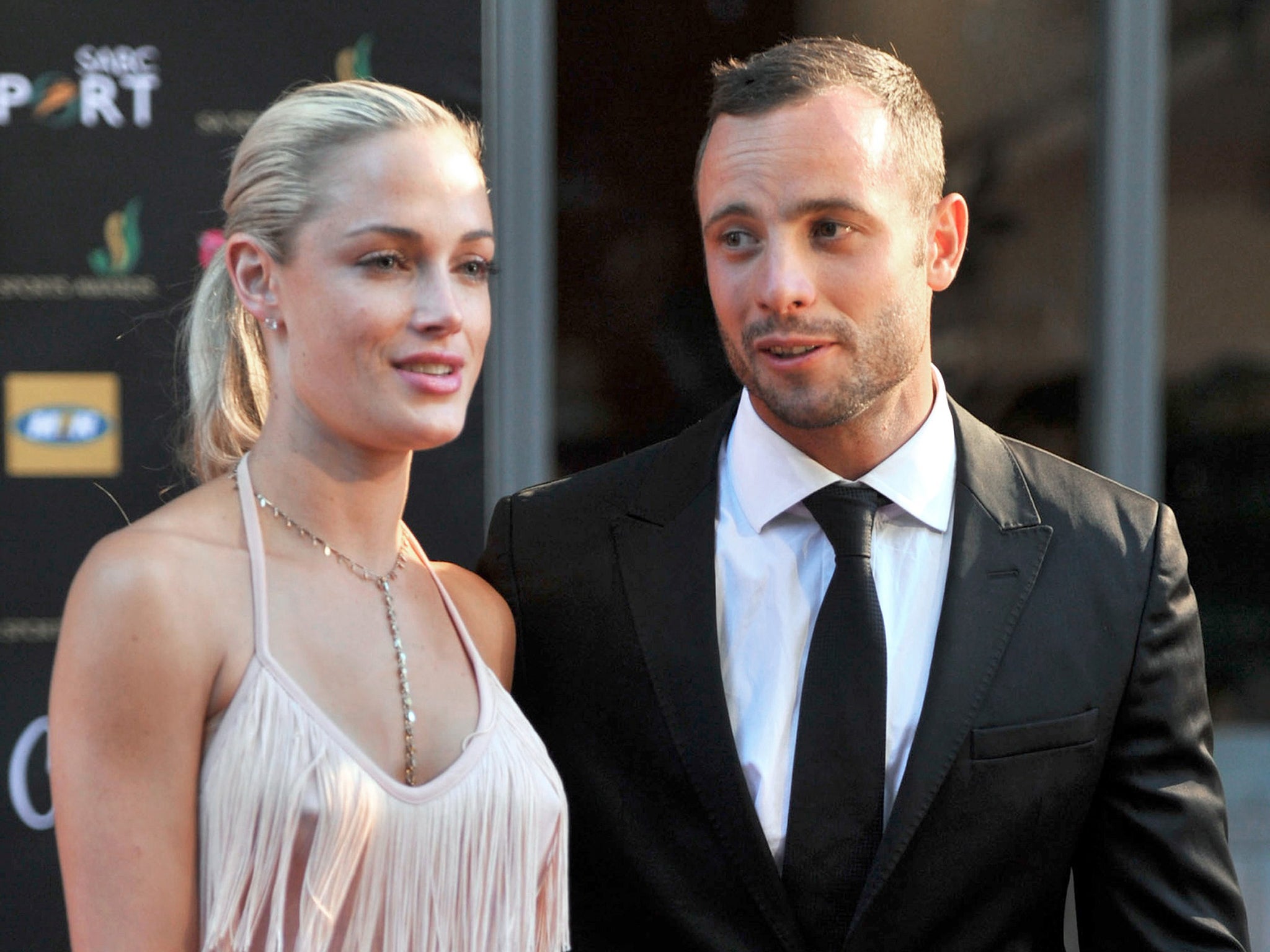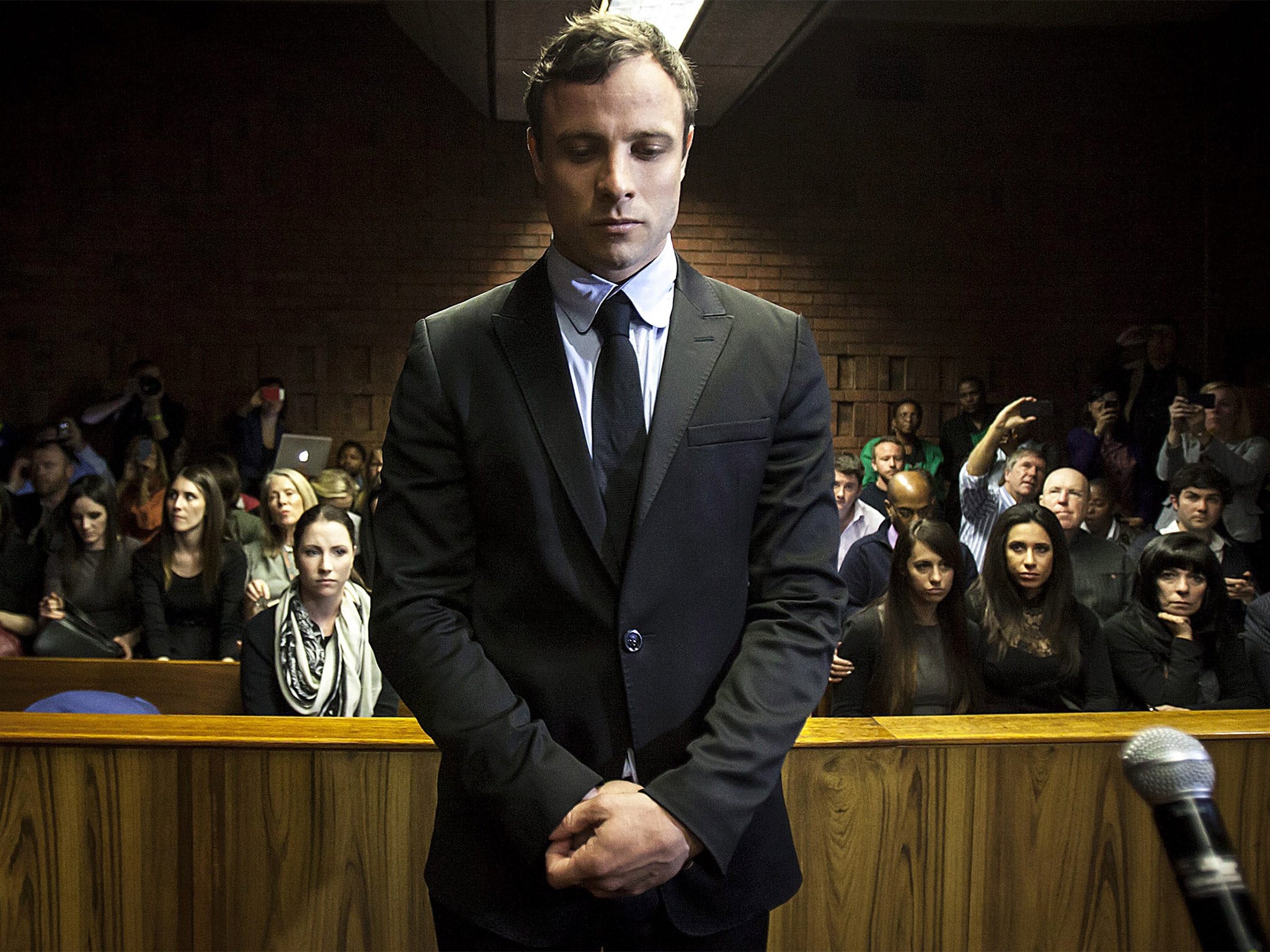Your support helps us to tell the story
From reproductive rights to climate change to Big Tech, The Independent is on the ground when the story is developing. Whether it's investigating the financials of Elon Musk's pro-Trump PAC or producing our latest documentary, 'The A Word', which shines a light on the American women fighting for reproductive rights, we know how important it is to parse out the facts from the messaging.
At such a critical moment in US history, we need reporters on the ground. Your donation allows us to keep sending journalists to speak to both sides of the story.
The Independent is trusted by Americans across the entire political spectrum. And unlike many other quality news outlets, we choose not to lock Americans out of our reporting and analysis with paywalls. We believe quality journalism should be available to everyone, paid for by those who can afford it.
Your support makes all the difference.Oscar Pistorius could have his conviction upgraded from culpable homicide to murder and face a possible 15-year prison sentence, after an appeal application made by state prosecutors was granted.
It means the case, ongoing for almost 10 months, will reopen in South Africa’s court of appeal in Bloemfontein, and be heard by a panel of five new judges.
Granting the application, Judge Thokozile Masipa, who heard the original case, said the appeal made by state prosecutor Gerrie Nel showed that the law applied to the case could be open to a different interpretation. “I cannot say … that the prospect of success at the supreme court of appeal is remote,” Judge Masipa ruled at the High Court in Pretoria. “The application, therefore, in respect of count one is decided in favour of the applicant.”
Oscar Pistorius himself was not present to hear the application. He remains in prison in Pretoria, and will do so for at least another eight months, at which point he will become eligible for parole. South Africa’s Supreme Court will not be asked to decide whether the athlete knew his girlfriend Reeva Steenkamp was behind the bathroom door when he fired four shots through it in the early hours of Valentine’s Day morning last year.
By his own admission, Pistorius believed an intruder was behind the door, and the case will hinge on whether the athlete foresaw that his actions would kill that person. In her sentencing, Judge Masipa decided that while he should have foreseen this, he didn’t. If the Supreme Court decides otherwise, he could be convicted of second-degree murder, on the principle of dolus eventualis, the Latin term that has hovered over this incredibly protracted trial.
Judge Masipa rejected the prosecution’s application also to appeal the sentence she laid down, of five years, which Mr Nel called “shockingly inappropriate”. But in practice, once the matter is in the hands of the Supreme Court, it can decide to overturn this in any case. Reeva Steenkamp’s parents had previously said they were satisfied with the verdict and sentence handed down to Pistorius. The family’s lawyer, Dup de Bruyn, said: “All they’re saying is justice must run its course and they want to get on with their lives.”

Typically, cases take more than a year to appear before the Supreme Court, by which point Pistorius is likely to be out of prison and serving the rest of his sentence under house arrest. He would be unlikely to attend the trial, which would in the most part be a matter of arguing over whether the law had been correctly applied rather than hearing new evidence.
It is a victory for the National Prosecuting Authority (NPA), which has been humiliated both by the Pistorius case and by the acquittal of Shrien Dewani, after seeking his extradition for the supposed contract killing of his wife.
Nathi Mncube, the NPA’s spokesman said: “Our argument was that [Pistorius] should have been convicted of murder, and then would have been sentenced to a minimum of 15 years.”

Join our commenting forum
Join thought-provoking conversations, follow other Independent readers and see their replies
Comments